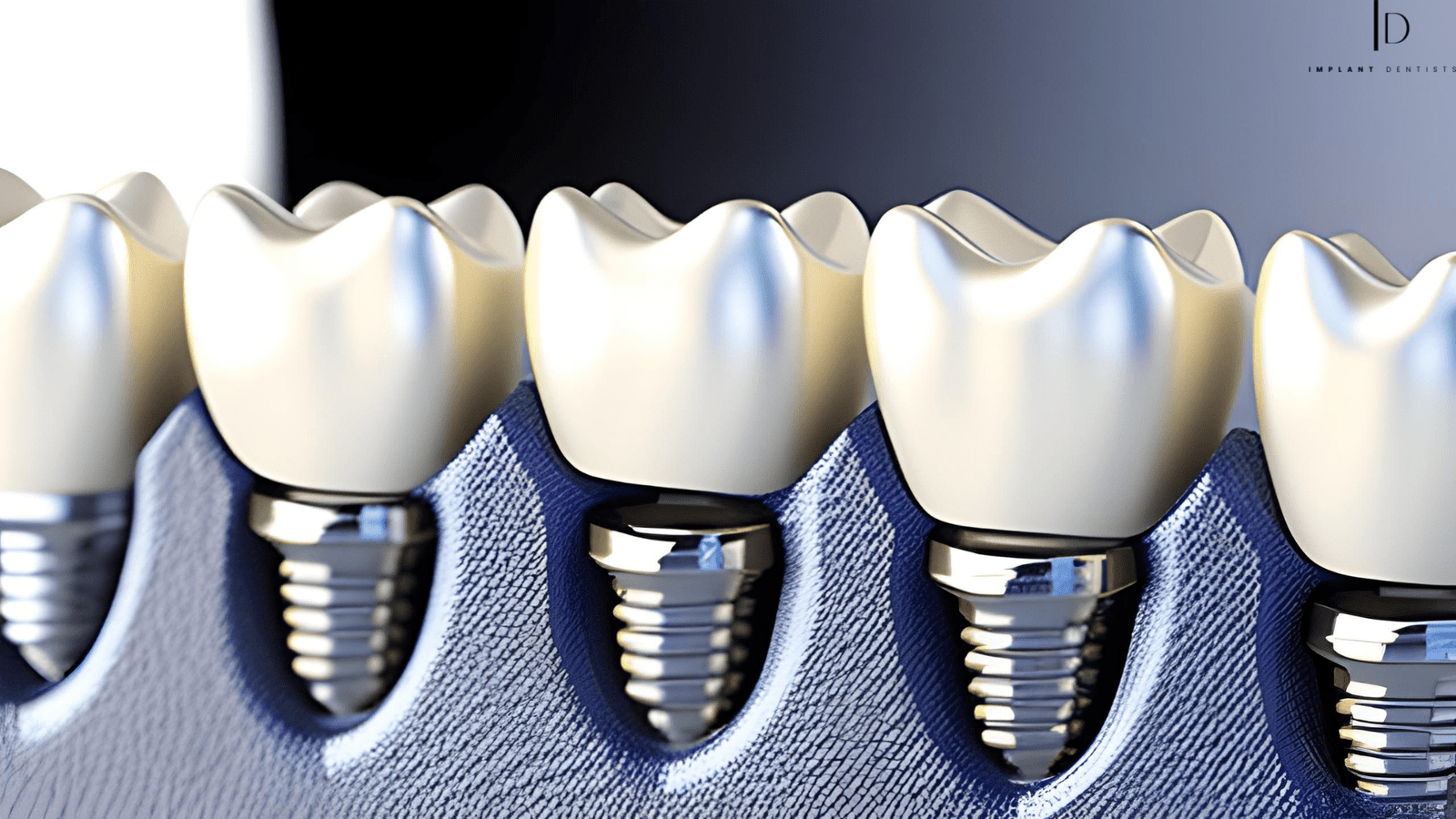Tag: The Implant Dentists

How to Find the Right Denture Specialists for Your Needs
July 31, 2023When it comes to oral health and regaining a confident smile, dentures play a crucial role for individuals with missing teeth. Finding the right denture specialist is vital to ensure that you receive top-notch care and personalised solutions for your unique needs. With a multitude of dental professionals out there, the process might seem overwhelming. However, by following these practical steps, you can find the perfect denture specialist to restore your smile and oral health.
Research Local Denture Specialists
Start your search by looking for denture specialists in your local area. Seek recommendations from friends, family members, or colleagues who have had successful denture treatments. Online reviews and testimonials can also provide valuable insights into the experiences of previous patients. Create a shortlist of potential denture specialists based on your research.
Check Qualifications and Experience
When it comes to dental health, qualifications and experience matter. Look for denture specialists who are licensed and certified by relevant dental authorities. Verify their educational background and check if they have pursued advanced training in prosthodontics or denture-specific treatments. A dentist with years of experience in crafting dentures will likely have honed their skills, giving you added confidence in their abilities.
Evaluate Specialization in Dentures
Dentistry is a diverse field, and not every dentist specialises in dentures. Focus on denture specialists who primarily deal with prosthodontics, as they possess the expertise required to design, fabricate, and fit dentures effectively. Choosing a dentist who specialises in dentures ensures you are working with someone who understands the intricacies of the process, increasing the likelihood of a successful outcome.
Technology and Techniques
The dental industry is continually evolving with advancements in technology and treatment techniques. Look for denture specialists who invest in modern dental equipment and stay up-to-date with the latest practices. Advanced technology can lead to more accurate and comfortable denture fittings, enhancing your overall experience.
Consultation and Communication
Before committing to any treatment, schedule a consultation with your shortlisted denture specialists. During the consultation, observe how they communicate and listen to your concerns. A great dentist will take the time to understand your needs and explain the treatment process in a clear and compassionate manner. They should also be open to answering any questions you have about the procedure.
Review Before and After Photos
Ask the denture specialists to provide before and after photos of their previous patients. This will give you a visual representation of their work and help you gauge the quality of their dentures. A skilled denture specialist will have a portfolio of satisfied patients and showcase their ability to create natural-looking smiles.
Consider Cost and Insurance Coverage
Denture treatments can vary in cost, depending on the complexity of the case and the materials used. While it’s essential to consider your budget, prioritise the quality of care over the price. If you have dental insurance, check if the denture specialist is a part of your network to maximise your benefits.
Conclusion
Choosing the right denture specialist is a crucial step towards improving your oral health and enhancing your quality of life. Take the time to research, evaluate qualifications, and communicate with potential denture specialists before making your decision. Remember, a qualified and experienced denture specialist will not only provide you with a beautiful smile but also ensure that your dentures fit comfortably and function effectively. With the right specialist by your side, you can regain your confidence and enjoy the benefits of a healthy, radiant smile once again.

5 Tips for Finding Affordable Dental Implants
July 25, 2023Are you in need of dental implants but worried about the high costs? Dental implants can be a significant investment in your oral health and overall well-being. But finding affordable options can be challenging. However, with some research and careful planning, you can discover more budget-friendly alternatives without compromising on quality. In this blog post, we’ll provide you with five essential tips to help you find affordable dental implants.
1. Compare Prices from Different Dental Clinics
The first step in finding affordable dental implants is to do your homework. Reach out to various dental clinics in your area and inquire about their implant services’ prices. Keep in mind that the cost of dental implants may vary depending on factors such as the clinic’s location. The dentist’s expertise, and the materials used. By comparing prices, you can get a better idea of the average cost and find a clinic that offers competitive rates.
2. Look for Dental Schools and Teaching Hospitals
Dental schools and teaching hospitals often offer dental services, including dental implants, at reduced prices. Although the procedures are performed by dental students under the supervision of experienced faculty, you can rest assured that the treatment quality remains high. These institutions aim to provide affordable dental care while offering students valuable hands-on experience. If you’re comfortable with the idea of receiving treatment from a supervised student, this option can be an excellent way to save money on dental implants.
3. Inquire About Financing and Payment Plans
Dental implants’ upfront cost might seem overwhelming, but many dental clinics offer financing options and payment plans to help ease the financial burden. These plans allow you to pay for the treatment in instalments, making it more manageable for your budget. Before committing to a dental implant procedure, discuss payment options with your chosen dental clinic and choose a plan that fits your financial situation best.
4. Explore Dental Tourism
Dental tourism is an increasingly popular option for individuals seeking affordable dental treatments, including dental implants. Many countries offer high-quality dental services at significantly lower prices than in more expensive regions. If you’re open to travelling abroad for your dental implants, consider researching reputable dental clinics in countries known for their dental tourism industry. Be sure to account for additional travel expenses when weighing this option, but even with these costs factored in, you may still save money compared to getting the treatment at home.
5. Inquire About Insurance Coverage or Discount Programs
While dental implants may not be fully covered by all insurance plans, some policies offer partial coverage or discounts for certain dental procedures. Review your dental insurance policy to see if dental implants are included or if there are any relevant discounts available. If you don’t have insurance coverage for dental implants, inquire about discount programs that some dental clinics offer. These programs can significantly reduce the cost of your treatment.
Conclusion
Finding affordable dental implants may require some effort and research, but it’s well worth it for the long-term benefits to your oral health and self-confidence. Remember to compare prices from different dental clinics, explore dental schools and teaching hospitals, inquire about financing and payment plans, consider dental tourism if possible, and explore insurance coverage or discount programs. By following these five tips, you’ll increase your chances of finding a cost-effective solution for your dental implant needs without compromising on quality. Prioritise your oral health and take the first step towards a brighter smile today!

The Science Behind Dental Implants: Unveiling the Technology and Techniques
June 27, 2023Dental implants have transformed dentistry by offering a durable and practical replacement for lost teeth. This article aims to delve into the science behind dental implants, shedding light on the technology and techniques involved. By understanding the intricate processes and advancements in this field, patients can make informed decisions about their dental health and regain their smiles with confidence.
Understanding Dental Implants:
Artificial tooth roots called dental implants are inserted into the jawbone surgically. Composed of biocompatible materials, typically titanium, they fuse with the bone to provide a stable foundation for replacement teeth. This process is called osseointegration and is a critical factor in the success of dental implant procedures.
Implant Design and Materials:
Implants are meticulously designed to mimic the natural tooth structure. They consist of three main parts: the implant fixture, abutment, and prosthetic crown. The implant fixture serves as the artificial root, while the abutment acts as a connector between the fixture and crown. Different materials, such as titanium and ceramic, use for dental implants, each offer unique advantages.
Osseointegration – The Key to Success:
The success of dental implants lies in the process of osseointegration. Once the implant is placed, it integrates with the surrounding bone over time. The implant’s surface texture and structure play a crucial role in promoting osseointegration by enhancing bone cell attachment and growth. Recent advancements in implant surface technologies, such as nanostructures and coatings, have significantly improved osseointegration rates.
Computer-Aided Implant Placement:
Technological advancements have revolutionised dental implant procedures. Computer-aided implant placement techniques utilise advanced imaging technologies, such as cone-beam computed tomography (CBCT), to create detailed 3D models of the patient’s jaw. This enables dentists to plan the optimal placement of implants with precision, minimising risks and ensuring optimal functional and aesthetic outcomes.
Guided Implant Surgery:
Guided implant surgery combines computer-aided design and manufacturing (CAD/CAM) technologies with real-time surgical guidance. Using the 3D models, a surgical guide is created, which aids in accurate implant placement. This approach improves the efficiency and predictability of the surgery, reduces patient discomfort, and enhances overall treatment outcomes.
Immediate Implant Placement and Loading:
Dental professionals can place dental implants immediately after tooth extraction in certain cases. This approach, known as immediate implant placement, reduces treatment time and preserves the surrounding bone and soft tissue. With advancements in implant design and techniques, immediate loading of a temporary or permanent prosthesis onto the implant is also possible, providing patients with immediate aesthetic and functional benefits.
Advancements in Implant Materials and Surface Modifications:
Ongoing research and development have led to the emergence of new implant materials and surface modifications. Materials such as zirconia, a strong ceramic, offer excellent aesthetics and biocompatibility. Surface modifications, including nanotopography and bioactive coatings, aim to enhance osseointegration and promote faster healing.
Conclusion:
Dental implants have transformed the way we approach tooth replacement, combining scientific principles with technological advancements. The science behind single or full jaw dental implants, including osseointegration, implant design, computer-aided techniques, and material innovations, continues to evolve, offering patients improved treatment outcomes and long-term success. By understanding these advancements, individuals can make informed decisions about dental implant procedures, ultimately restoring their smiles and improving their quality of life.
